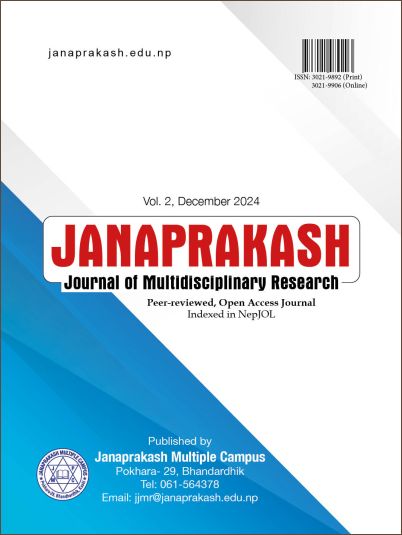Women-led Enterprises for Poverty Reduction in Pokhara
DOI:
https://doi.org/10.3126/jjmr.v2i1.75173Keywords:
Poverty, Poverty alleviation, Social entrepreneur, Sustainable development goal(SDG), Vulnerable Household, Women empowermentAbstract
This study explores the role of women-led enterprises in poverty reduction, focusing on their socio-economic impact, challenges, and success factors. Employing a mixed-method approach, the research integrates qualitative interviews with women entrepreneurs and quantitative data analysis of various enterprises. The study investigates the types of businesses women run, such as handicrafts, animal keeping, tea shops, vegetable and fruit stalls, sewing and cutting, and beauty parlors, and their impact on social mobility and economic empowerment. Findings reveal that these enterprises significantly contribute to poverty alleviation by fostering economic empowerment, improving household income, and enhancing social inclusion. Despite facing challenges such as limited access to capital, training, and networks, women entrepreneurs manage to achieve consistent profits with relatively small investments. Key success factors identified include resilience, community support, and adaptability, while common challenges include cultural norms, gender-based discrimination, and lack of financial resources. The research further examines the implications of these findings for policy development and support mechanisms aimed at creating a more enabling environment for women entrepreneurs. By highlighting the experiences of women-led businesses, this study contributes to the broader discourse on the intersection of gender, entrepreneurship, and poverty alleviation.
Downloads
Downloads
Published
How to Cite
Issue
Section
License
Copyright (c) 2024 The Author(s)

This work is licensed under a Creative Commons Attribution-NonCommercial 4.0 International License.
This license enables reusers to distribute, remix, adapt, and build upon the material in any medium or format, so long as attribution is given to the creator. The license allows for commercial use.




